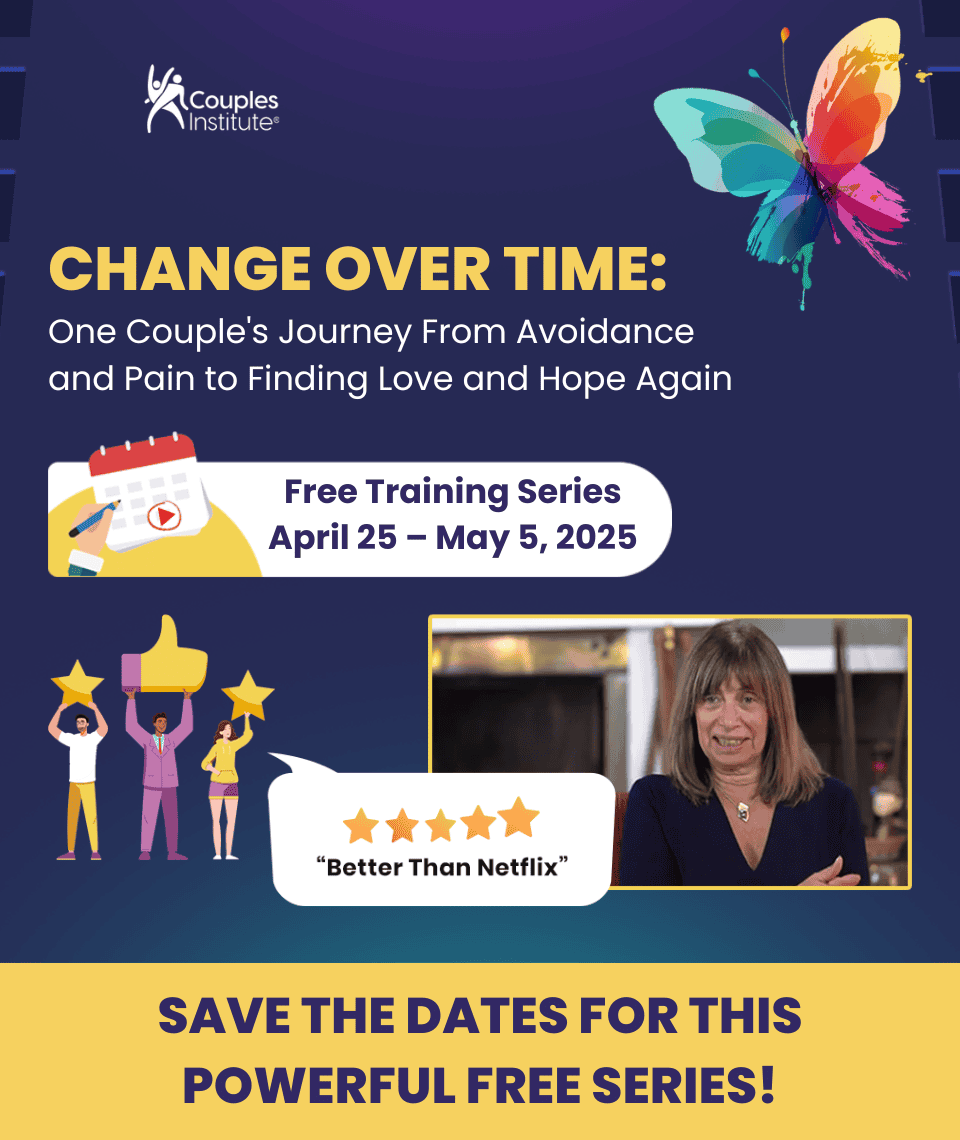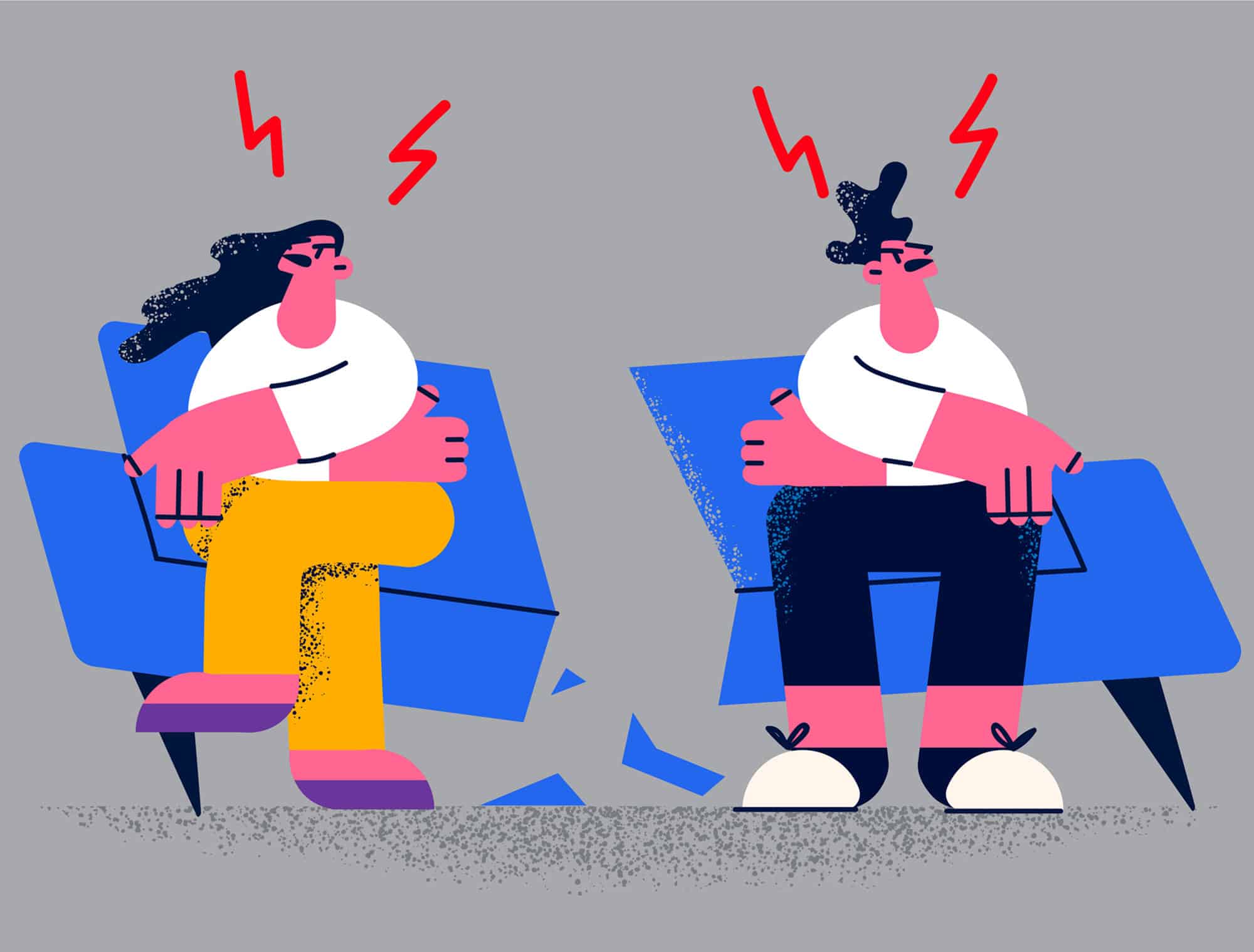Let’s look at what happens when a couple starts a session by dumping the fight of the week on you.
Here is one example of what you might say:
“Before we jump into discussing your fight, think of our time together today not as conflict resolution, but instead as a time to learn. You are here to learn from me and from each other.
You’re here to learn about your emotional triggers.
Solving this one fight won’t help you in the future. Instead you’re here to learn about what triggers you and your partner. You’re here to learn how to avoid triggering each other and what to do when you do trigger one another. This won’t always be easy, but it is essential to realizing the dreams that brought you together.
If you want to learn that, then you have to allow yourself to be coached by me. I’ll be coaching you to do some things that won’t feel natural or intuitive. If you don’t let me coach you, I will struggle with a part of you that says, ‘I don’t want to do that’ or ‘I don’t feel like doing that’ or ‘that’s not natural.’
A lot of what I ask won’t feel natural or intuitive. What’s natural is your history of how you respond under stress. Anything we do that breaks those patterns will at first feel totally awkward and unnatural.
You are here to learn new ways of being together. If you are willing to let me interrupt and coach you, then you will be different.
If you don’t let me coach you, nothing will happen. After several months, you’ll say, “Well, we tried therapy but it didn’t work.” If you allow me to coach you into new ways of being together, you’ll be learning how to work as a team. You will discover what gets in the way of you cooperating and collaborating. If you stay open to feedback and to supporting changes in each other, a lot will start to change.”
This kind of conversation is key in the Developmental Model of Couples Therapy. Best of all, by starting the conversation with your clients in this way, you’ll accomplish several things:
- Establish yourself as a strong leader.
- Demonstrate your commitment to helping them change.
- Bring clarity to the process, alleviating some of their anxiety right from the start.
- Set the tone for a collaborative process, one that relieves you of working harder than they do or of being “the most motivated one in the room.”
- Stop the focus on rehashing the fight of the week.
Shifting the focus from problem solving to learning sets the session up for success. If you learn to identify their triggers and the places each of them collapse, the session will be a success even if their immediate fight is not resolved.
Learning to shift the focus of tough sessions is crucial so couples walk away saying, “Wow, we really got somewhere.”
This is just one reason why I cover this critical skill in depth in my online Developmental Model training program. Because the more you can shift the focus, the more your couples will be glad they are working with you. And the more likely they are to return.
If you’ve ever felt flustered, frozen, or shaken by something unexpected in a session, I’m hosting a series called What Do You Say When™…?
We’ll cover what to do when:
- A partner refuses to be accountable for the problems they create
- Clients fight, blame and proclaim “I’ll only change if you change first.”
- One partner insists, “I’m not important. I don’t matter to you.”
- One partner feels like an unlovable victim
- Couples say “We can’t communicate!” (but the problem is much bigger)
This is a rare opportunity to get immediate, practical advice from experienced therapists who have been there and handled that.


 We respect your privacy.
We respect your privacy.




Wonderful intervention. Thank you.
what to do when one partner us suicidal and blames the other who is willing to be accountable.
help.